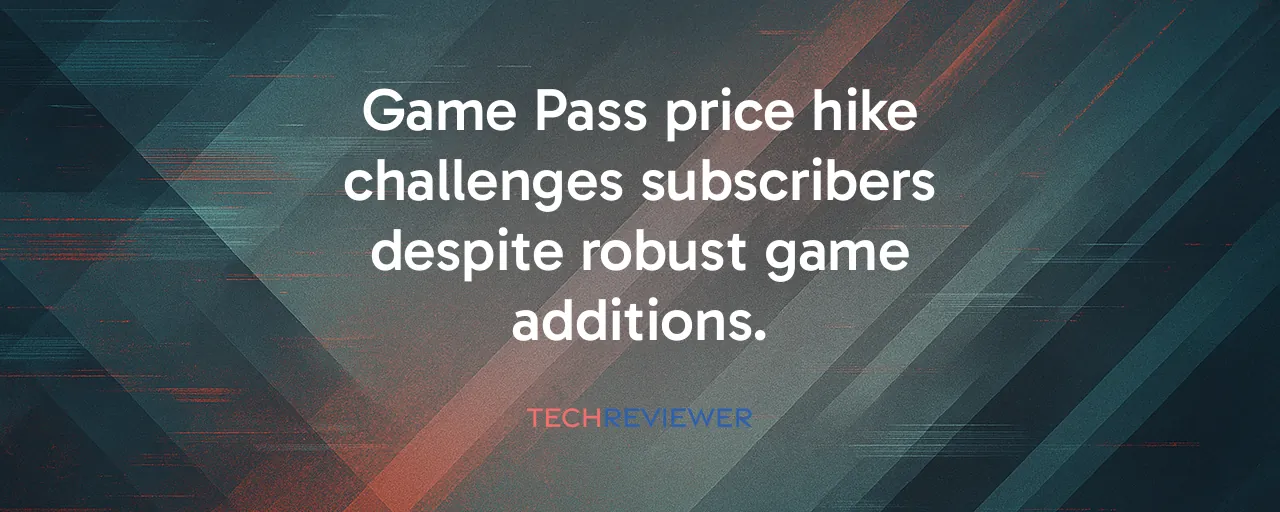A Packed October Lineup
Microsoft kicked off October 2025 with a hefty Xbox Game Pass lineup, dropping 13 titles in Wave 1 between October 8 and October 21, including the much-anticipated Ninja Gaiden 4 on the latter date. Players can dive into day-one launches like Double Fine's Keeper and Ball x Pit, alongside the PC debut of classics like Baldur's Gate and Baldur's Gate II: Enhanced Editions, which arrived on October 9. It's a diverse spread, catering to everyone from action fans to strategy buffs, and it shows Microsoft's commitment to keeping the library fresh.
What stands out is the sheer variety. Supermarket Simulator, available right out of the gate on October 8, lets players run a virtual store, a quirky contrast to the high-octane Ninja Gaiden 4. Meanwhile, Keeper brings Double Fine's signature creativity, and The Casting of Frank Stone offers narrative-driven chills. These additions aren't just filler; they're a deliberate mix meant to hook different types of gamers. But with such a packed slate, the question is whether subscribers feel they're getting enough bang for their buck.
The Price Hike Backlash
The October lineup arrives amid stormy waters. Microsoft recently jacked up the price of Game Pass Ultimate to $29.99 a month, a 50% jump from $19.99. That's an extra $120 a year, enough to make any gamer wince. An IGN poll revealed 53.9% of over 42,000 respondents are ready to ditch Game Pass entirely, while only 19.8% plan to stick with Ultimate. The frustration is palpable, especially since the new Premium and Essential tiers lock day-one releases behind the priciest Ultimate and PC subscriptions.
Microsoft's defense? More value. The company promises over 75 day-one releases a year, a 50% increase from 2024. They've also thrown in perks like Fortnite Crew and Ubisoft Plus Classics for Ultimate subscribers, plus a cloud streaming upgrade to 1440p. For dedicated players, this could save hundreds compared to buying games like Ninja Gaiden 4 or Keeper at $70 a pop. Still, casual gamers who play less frequently might find the $360 annual cost tougher to swallow than a full-price game or two.
Lessons From Blockbusters and Indies
To understand Game Pass's impact, look at Call of Duty Black Ops 6 and Hi-Fi Rush. When Black Ops 6 launched on Game Pass in November 2024, 82% of Xbox players accessed it through the service, costing Microsoft an estimated $300 million in retail sales. The upside? A surge in subscribers, proving big names drive sign-ups. But it remains a gamble, as publishers worry about lost revenue when players skip buying games outright.
Contrast that with Hi-Fi Rush, a 2023 shadow-drop that became a critical darling. Its surprise Game Pass launch let developer Tango Gameworks take risks on a vibrant, rhythm-based action game without banking on retail sales. The catch? Despite critical acclaim, the studio's long-term sustainability remains uncertain, raising questions about whether Game Pass's exposure translates to lasting developer success. These cases show the service's power to amplify reach but also its risk of reshaping how games make money.
Cloud Gaming's Promise and Pitfalls
Game Pass's cloud streaming, now at 1440p, is a big selling point. Players can jump into Ninja Gaiden 4 on a phone or low-end PC without needing a beefy console. Microsoft's Azure-powered servers make this possible, syncing progress across devices through Xbox Play Anywhere. It's a slick setup, letting you pick up where you left off, whether on a couch or a commute.
But it's not flawless. Some players report pixelation even on fast 140 Mbps connections, and occasional 30fps caps can frustrate action fans. Titles sometimes run on Xbox Series S specs instead of Series X, delivering lower resolutions than promised. These hiccups highlight that while cloud gaming opens doors, it's still a work in progress. For now, it's a nice bonus for Ultimate subscribers, but don't expect it to replace your console just yet.
Developers in the Spotlight
For developers, Game Pass is a double-edged sword. Studios like those behind Supermarket Simulator and Ball x Pit get guaranteed cash, like the $600,000 for Cooking Simulator's inclusion, a hefty chunk for a small team. Plus, Game Pass's global reach across 25 countries boosts exposure, especially for indies without big marketing budgets. Team Ninja and PlatinumGames, behind Ninja Gaiden 4, benefit from Microsoft's publishing muscle, ensuring a high-profile launch.
On the flip side, some developers worry about revenue. If a game like Black Ops 6 loses $300 million in sales, studios might hesitate to join unless upfront payments outweigh the risk. Usage-based deals, paying $0.10 to $0.50 per hour played, sound nice but can be unpredictable. The balance remains tricky: Game Pass offers stability and visibility, but it might undervalue breakout hits that could've sold millions at retail.
What's Next for Game Pass?
Microsoft's betting big on Game Pass as the future of gaming, but the road ahead isn't smooth. The promise of 75 day-one releases a year, backed by acquisitions like Activision Blizzard, gives subscribers like you access to heavy hitters without shelling out full price. Yet, with games like Cocoon leaving the service mid-month, there's a nagging worry about losing access mid-playthrough. The subscription model feels like a buffet: you can try everything, but you don't own the plate.
Looking forward, Microsoft needs to keep subscribers convinced the price is worth it. If cloud streaming gets smoother and the lineup stays this strong, Game Pass could redefine how we play. But if costs keep climbing or technical issues persist, that 53.9% ready to walk away might grow. For now, October's lineup is a bold move to prove Game Pass is still a gamer's best friend.
